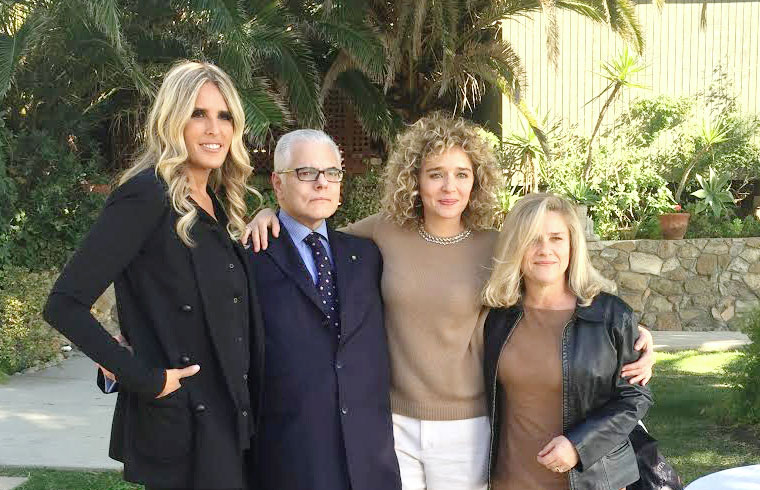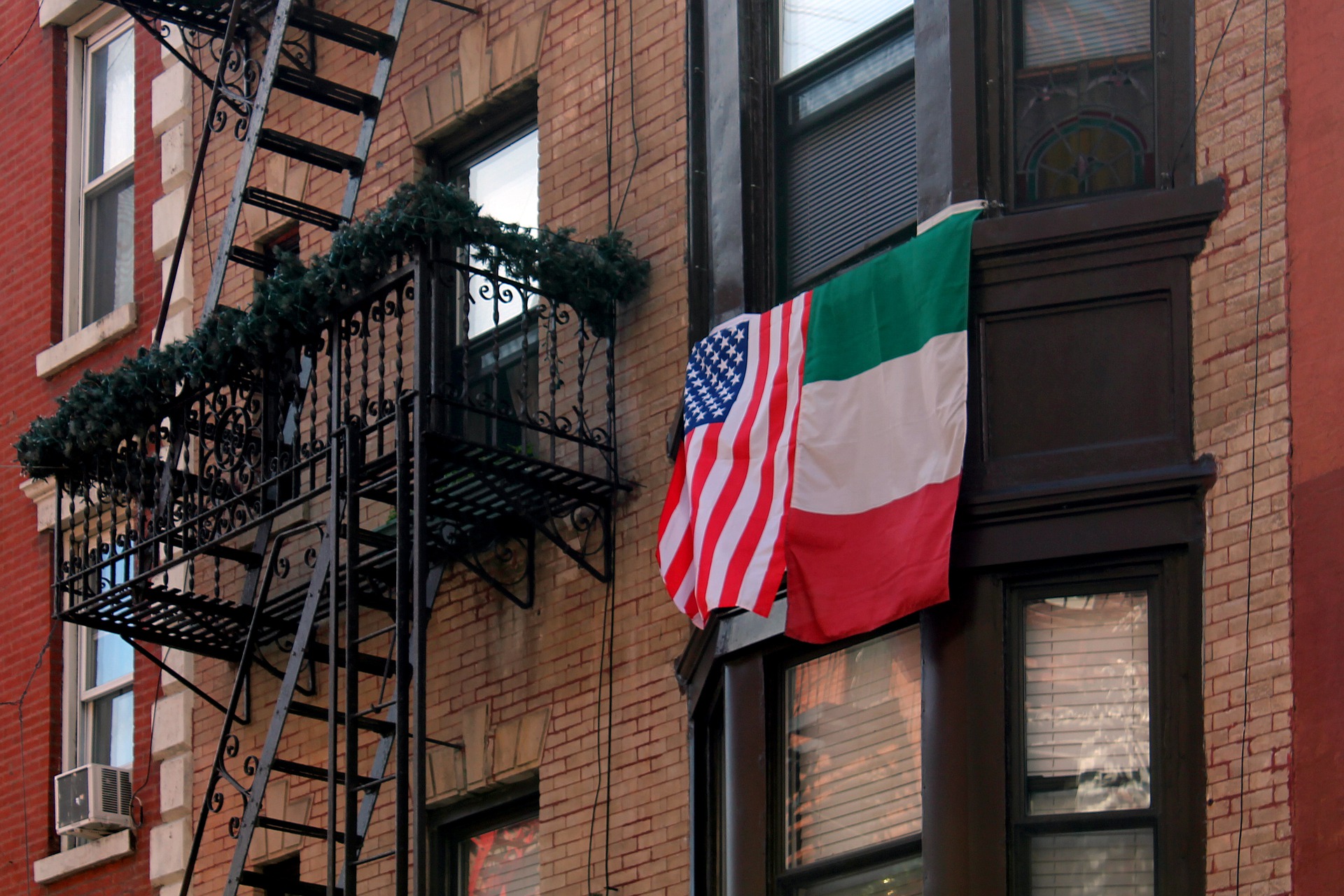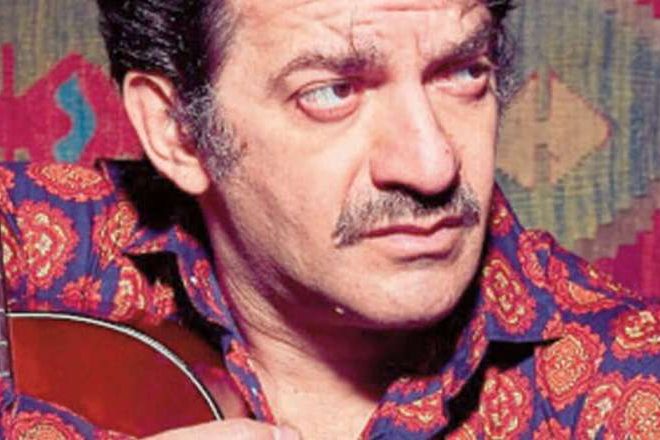Special guest and recipient of the namesake award, at the TaorminaFilmFest @LA first edition (January 20-21), was Italian actress/filmmaker, Valeria Golino (born in Naples, Italy, on October 22, 1965).
Golino’s talent for acting was recognized internationally early on, when, in 1986, at the 43rd Venice Film Festival, she won her first prestigious “Best Actress” award (now called “Volpi Cup”), for her leading role in F. Maselli’s, Storia d’amore (A Tale of Love).
Last September, in occasion of the 72nd Venice Film Festival, Valeria was able to repeat the feat, as she received her second “Volpi Cup” for her intense leading performance in Per Amor Vostro (For Your Love, by Neapolitan director, Giuseppe Mario Gaudino).
The actress plays Anna Ruotolo, a Neapolitan wife and mother, who passively accepts to be abused by her rogue husband, because she is too scared to stand up for herself.
Gaudino’s early formation in figurative art and his background in art direction, take a whimsical shape in his last artistic effort, in which the black and white – intermixed with flashes of doughy pigments and watercolors – mirrors the protagonist’s inner life.
The “Baroque” portray of Naples, teeming with explicit literary references to Dante Alighieri’s Divine Comedy and De Filippo’s plays, seems to be reminiscent of Curzio Malaparte’s lesson.

As in the latter’s novel, La Pelle (The Skin, 1949), and the namesake Liliana Cavani’s film (1981), Per Amor Vostro represents a fresco of Neapolitan humanity, especially its corruption and superstitions.
However, amidst the darkness, Anna’s redeeming character brings us a bright ray of hope.
Congratulations for your second “Volpi Cup”, received during last Venice Film Festival, for your leading role in Per Amor Vostro (2015). And now you were just awarded with the very first “TaorminaFilmFest@LA” prize. Did you feel you were going back to your roots, as you were playing a woman from Naples?
Regardless of the fact that Naples is my home town, the city is highly inspirational. It is a “treasure chest”, filled with significance and pathos.
Being from Naples made my task a lot easier, since I could relate with the reality, portrayed in the movie. Although, the protagonist, Anna, comes from a very difficult background, while I was raised in a middle-class, bourgeois household.
Besides, I had to speak Neapolitan for a major portion of the movie, and, even if in my family we didn’t use dialect, growing up in Naples allowed me to absorb that vernacular.
I accepted the role, with longstanding awareness of the problematics raised in the film. Since an early age, despite never being involved directly, I was surrounded by similar troublesome situations.
To conclude, I approached Naples, both with the familiarity, typical of someone who grew up there, and the natural detachment, typical of someone who doesn’t live there any longer.
How was debuting as director/screenwriter with the short, Armandino e il Madre (2010), and, then, the transition to a feature, with Honey (2013)? Are you going to repeat the experience?
Again I conceived my first directorial work – the short film, Armandino e il Madre – as a story set in Naples. A city which is characterized by a diverse humanity, intense contradictions, a mix of beauty and misery.
The capital of the Italian region, Campania, is a real “factory” of ideas, so that the dramaturgical task is easier there, than any other place.
My first feature as filmmaker, Honey, doesn’t deal with Naples at all, although I was tempted to set some scenes there.
Euthanasia and other ethical issues, discussed in that movie, were already intense. Naples would have surely grabbed the spotlight.
I chose to set the film in Rome’s more neutral areas, to prevent the risk that locations might overshadow the plot.
Right now, I’m in the process of writing the screenplay for my second feature film. It took me a while to find a story, whom I really wanted to tell. I can only anticipate that it deals with two brothers and it’s set in Rome.
In conclusion, you lived in Los Angeles, from 1988 to 2000. Were you in touch with the Italian-American community, back then? What do you like about the city?
No, I wasn’t in touch with the Italian-American community. That was not due to an active choice, but more caused by chance circumstances. However, I did have contacts with lots of Italian actors, writers, directors.
I’m fond of Los Angeles. Here, I befriended lots of people and those strong friendships lasted over the years. It’s almost as if, since L.A. lacks a real center of aggregation, it can only become alive through the relationships that you establish.
Whenever I come here, I feel a sense of freedom and a promise of something, that is not necessarily met. In L.A., I’m revitalized with new inspiration and willing to stay active.






























